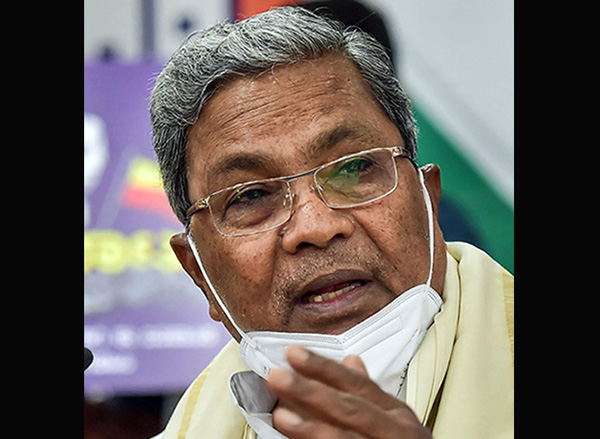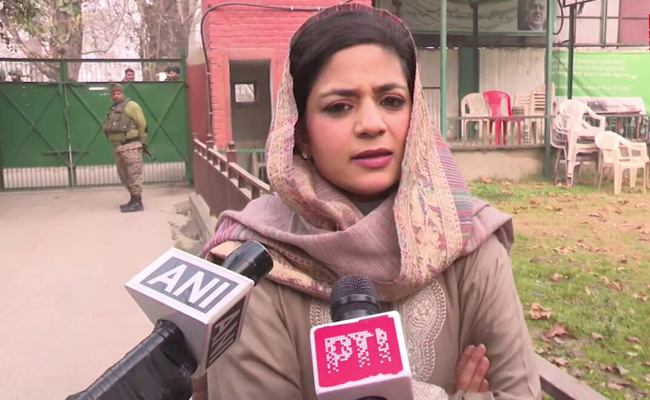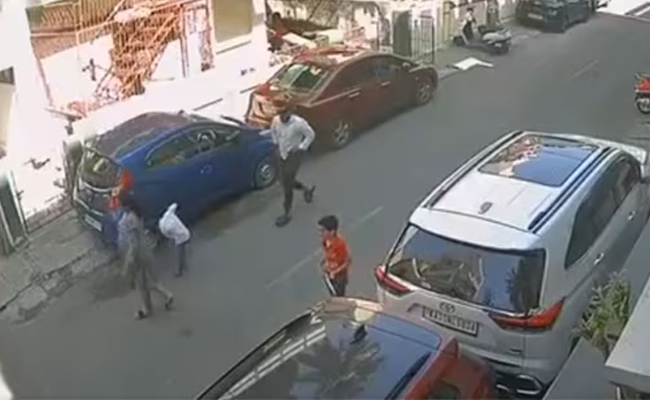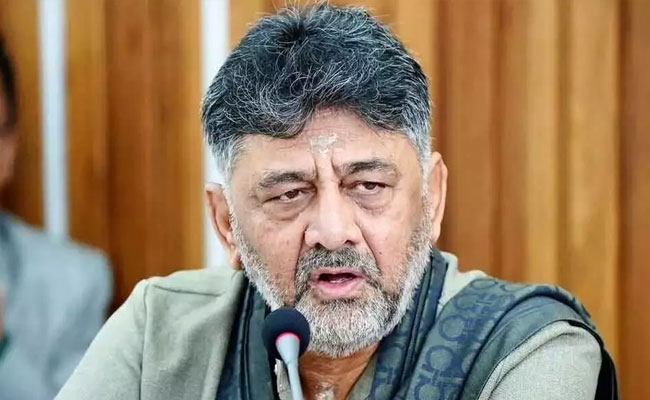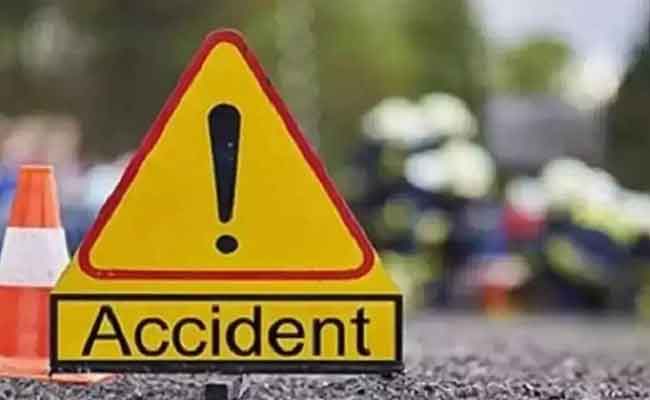Belagavi, Nov 7: Ahead of Prime Minister Narendra Modi's visit to Bengaluru on November 11, senior Congress leader Siddaramaiah on Monday questioned Modi's contributions to Karnataka and said the latter was visiting the State because Assembly election is fast approaching.
Questioning his silence over allegations of corruption against the BJP government in the State, the former Chief Minister asked what was the slogan "Na Khaunga, Na Khane Doonga (neither will I indulge in corruption nor allow anyone else to indulge in it) for?"
"Modi says there is a double-engine government in Karnataka, but what has he done? When there were floods, he did not come, did not hear out the woes of the people. Now, with the elections are nearing, he is coming," Siddaramaiah said.
Speaking to reporters here, he said, "What has he (PM) done regarding price rise, unemployment. Hate politics increased after he came to power. What has he done to fulfil the promise of doubling farmers' income. Not even 10 per cent of promises made by the BJP in Karnataka have been implemented."
Alleging that Modi did not take any action against the '40 per cent commission allegation against the BJP government in Karnataka' despite a letter to him from the State contractors' association seeking action, the Congressman asked, "What is then the slogan Na Khaunga, Na Khane Doonga for?"
Modi is to visit the State on November 11 to attend various functions like the inauguration of the second terminal of the Kempegowda International Airport, second terminal, unveiling of a 108-foot statue of Bengaluru founder Nada Prabhu Kempegowda, and flagging off of the Chennai-Mysuru 'Vande Bharat' train, among others.
Seeming to be undecided over the constituency from where he would be contesting the 2023 Assembly polls in Karnataka, the Leader of Opposition in the State Assembly indicated that he may not contest from his current seat - Badami. "There is pressure on me to contest from Badami, thousands of women there have threatened to sit in front of my house to put pressure on me, they have written a letter.
The reason I'm thinking so much is because, I will not be able to be there in the constituency once a week, will not be able to meet workers on a daily basis and listen to issues and resolve them, as I will have other work," said Siddaramaiah.
He said, "People are asking me to contest, but my conscience tells me not to; it has been two months since I have been to Badami. I planned to go there tomorrow (Tuesday), but cancelled it, as I've other work."
There is also pressure to contest from Kolar, he said, "My son (Varuna MLA Yathindra Siddaramaiah) is asking me to contest from Varuna (Siddaramaiah had earlier represented the seat), and Chamrajpet MLA Zmeer Ahmed Khan is asking me to contest from his...from where should I contest, our party will decide."
Siddaramaiah has made it clear that he would not contest from Chamundeshwari. As the then sitting chief minister, he lost the 2018 polls in Chamundeshwari to JD(S) G T Deve Gowda by 36,042 votes.
He, however, won Badami, the other constituency from where he had contested and defeated B Sriramulu (BJP) by 1,696 votes.
Let the Truth be known. If you read VB and like VB, please be a VB Supporter and Help us deliver the Truth to one and all.
Srinagar (PTI): PDP leader Iltija Mufti on Friday lodged a police complaint seeking the registration of an FIR against Bihar Chief Minister Nitish Kumar for recently pulling off the veil from a woman doctor’s face.
However, there was no word from the police on whether an FIR has been registered against the JD-U chief.
“I’m writing to bring to your attention a vile incident which has caused immense distress and hurt among Muslims, especially women. A few days ago, we watched with shock, horror and worry as Bihar Chief Minister Nitish Kumar pulled down the ‘naqab’ of a young Muslim doctor in full public glare at a government function,” Mufti said in her complaint to the Kothibagh SHO.
She added that what made “matters worse was the unsettling reaction of the people around, including the deputy chief minister, who chuckled and watched with glee”.
“The forceful stripping of her ‘naqab’ wasn’t just a brutal assault on a Muslim lady but on the autonomy, identity and dignity of every Indian woman,” Mufti alleged.
ALSO READ: Doctor whose naqab was removed by Nitish Kumar will join duty in Bihar: Official
The incident, a video clip of which has been circulated widely, sparking a major political row, took place on Monday at the chief minister’s secretariat in Patna where Ayush doctors gathered to receive their letters of appointment.
When the woman came up for her letter, Kumar saw her 'naqab', said “what is this” and then removed the veil, prompting the opposition parties to demand an unconditional apology from the chief minister.
Mufti said it was more concerning that the incident took place amid the “deliberate othering and political and economic disempowerment of Muslims all across India”.
The complaint said in the days following the "shameful" incident, “we have witnessed with abject horror videos of miscreants pulling off the naqabs of Muslim women across India”.
“Perhaps a chief minister engaging in this vulgar act of indecency has now emboldened such lumpen elements, giving them carte blanche (complete freedom) to humiliate and attack Muslim women,” the PDP leader alleged in her complaint.
Mufti also said that as a young Muslim woman, she is “deeply worried” that so far, no concrete action has been taken in the matter to serve both as a deterrent and precedent.
“BJP ministers and the men in power are justifying Kumar's indecency. Au contraire (on the contrary), they are condoning and celebrating it. I am sure you will agree that the rule of law must be applied uniformly and unequivocally to every Indian citizen.
“Being a chief minister doesn't exonerate an individual just because he enjoys political power and patronage,” Mufti said, and urged police to immediately file an FIR against Kumar.
“We owe it to every Indian woman to protect her dignity. The choice to wear what she wants without fear, with her head held high,” she added.
Speaking to reporters, Mufti said rather than apologising for what the Bihar chief minister did, the BJP ministers are “giving vulgar statements”.
“Yesterday, Griraj Singh, a Union minister, said Muslims in India should go to hell. If you touch the veil of our women, please be ready for the consequences.
“There was a need to file an FIR as, instead of being apologetic, the BJP wants to justify what he did, which is extremely wrong and criminal,” she said.
The PDP leader also said it is up to the police now, “but we have to do our bit”.
Lashing out at J-K Chief Minister Omar Abdullah, Mufti said it is "most troubling" that Abdullah, who is the only Muslim chief minister in India, did not issue a statement against Kumar’s act for two days, and when he did, he justified Kumar's “indecent act”.
“Despite being a Muslim chief minister, he does not want to protect Muslim girls and women. So, I felt it was my duty as a young Muslim woman to come here today, express solidarity with this doctor, and also to make sure that the dignity and identity of not just Muslim women, but all women across India, are protected. We have the right to choose what we want to wear with our head held high,” Mufti said.
PDP's Iltija Mufti lodges police complaint against Bihar CM Nitish Kumar over 'hijab' incident
— ANI Digital (@ani_digital) December 19, 2025
Read @ANI Story | https://t.co/Jz5eH1JZBZ #IltijaMufti #NitishKumar #Hijab pic.twitter.com/ftZ9hP6TXK

